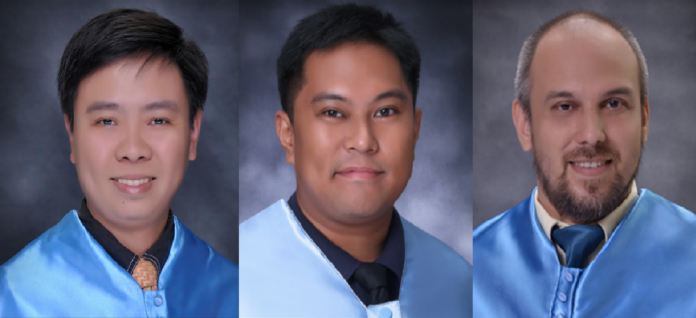THOMASIAN scientists slammed presidential spokesman Harry Roque Jr. for saying that no Filipino had applied to do maritime research on the Philippine Rise, formerly known as the Benham Rise.
Dr. Rey Donne Papa, a biologist and a researcher at the UST Research Center for Natural and Applied Sciences, said there had already been a group of researchers from the Bureau of Fisheries and Aquatic Resources, National Institute of Geological Sciences, and University of the Philippines-Marine Science Institute (UPMSI) who have shared funds and data to study the Philippine Rise.
In a Malacañang briefing last Jan. 23, Roque said “only China has qualified so far” to do research on the Philippine Rise, claiming it was too costly for Filipinos to do so.
“Surprisingly enough for someone coming from UP, he [Roque] is terribly unaware of the type of research in his backyard—in his own institution. The UPMSI is an integral part of the research team that documented various aspects on the physical, chemical and biological properties of the [Philippine] Rise,” Papa told the Varsitarian.
“His statements were based on his own ignorance. It is clear that he was pointing that Filipinos are not capable. For [him] to blatantly say that only the Chinese [scientists] are capable of doing research on our own backyard, I think it is one of the instances when [a] government [official] has not been careful with their words,” Papa added.
The Philippine Rise, a 13-million hectare underwater and volcanic plateau rich in mineral and natural gas deposits, is part of the Philippine continental shelf and territory as per the Constitution.
In May 2017, the Chinese Foreign Ministry argued that the Philippines could not claim the Philippine Rise as part of its territory, despite the recognition given by the United Nations Commission on the Limits of the Continental Shelf to the country in 2012, allowing it to explore resources in the area.
“Any research that should be done in the Philippines can be done with the Chinese, but it has to be in a collaborative nature. [We] cannot say ‘only China can do it’, atin ‘yon, eh. We collaborate with scientists from China, and we have published papers which are jointly based on research efforts equal on both sides,” Papa said.
He said Filipino researchers were capable of improvising marine equipment andof producing “scientifically-valid” research outputs despite having limited funds.
Through a Memorandum of Understanding approved by the Philippine government and a foreign collaborator like China, Filipino researchers are protected from being “exploited” during a maritime study, Papa explained.
“Hindi puwede ‘yong papupuntahin mo na lang sila [foreign researchers] rito sa Pilipinas tapos [ang] sasabihin mo ay ‘hindi namin kaya ‘yan, kayo na ang bahala’,” he said.
Dr. Jonathan Carlo Briones, a biologist and an associate member of the National Research Council of the Philippines, said Filipino researchers have acquired reliable knowledge on coastal work that has been enough to do research on the Philippine Rise.
“I think it [Roque’s remark] is out of ignorance, and I do not think he is the one qualified to answer on the issue. If you think about it, sino bang mas makakaalam na magtrabaho sa archipelagic waters? Mas marami tayong alam sa coastal and archipelagic work because we [Filipinos] live in a place like that,” Briones told the Varsitarian.
“But if only the government actually[moves] to fund more scientific communities[in the Philippines], it would be better-we would be less dependent on foreign collaborators,” Briones added.
On PH-China collaboration
Dr. Richard Thomas Pavia Jr., a marine biologist from the University, said Philippines as the host country of the Philippine Rise maritime research should “control everything” that would happen during marine surveys with China.
“Considering what they (China) did to Scarborough Shoal, we should be very skeptical about what their plans are,” Pavia told the Varsitarian.
The Philippines-China standoff over resource-rich Scarborough Shoal started in April 2012 after the Philippine Navy discovered eight Chinese shipping vessels carrying illegally-gathered coral reefs and other marine life in the shoal located at the West Philippine Sea, or South China Sea as claimed by China.
In July 2016, the United Nations Arbitral Tribunal ruled that China had “violated the Philippines’ sovereign rights” over West Philippine Sea by building artificial islands and blocking Philippine fishing in the region.
“With China, it is very hard because we do not know its plans. It is a country we cannot decipher. Like ngayon sa Benham Rise, ‘yong names na ginagamit nila sa geographic landmarks, gusto nila ‘yon ang gamitin internationally,” Pavia said.














